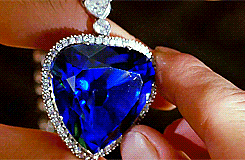Diamonds are a girl's best friend, but are they a good investment? That depends on how honest the salesperson is.
Driving the news: Canadians pay $4,300 (on average) for a shiny diamond ring, but a new report from the CBC says they might not have gotten what they paid for as jewelry retailers use inconsistent grading reports and false claims to sell stones.
- The four characteristics determining a diamond's value are cut, colour, carat and clarity. Of the three rings purchased by the CBC, two were mislabelled in terms of clarity, which reduced their value by more than $800.
- Salespeople also touted diamonds as an investment, saying the value will increase over time—but experts say that isn't the case as used diamonds often sell for much less than the original price.
Why it's happening: Retailers work with labs that appraise their stones, and to an untrained eye, discrepancies are indistinguishable. Consumers trust salespeople who provide them with certificates of "ironclad" authenticity—but execs of the jewelry companies went on to say the reports are "subjective."
Why it matters: First off, you should get what you pay for. And secondly, knowing the real value of your diamond is important for insurance purposes—you don't want to pay higher premiums on a ring that isn't worth the price you paid for it.
Bottom line: You should get a secondary appraisal of the stone from an independent lab which will run between $50-$150, a small price for peace of mind. But take it to a reputable appraiser because scammers are in that game too.
